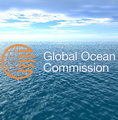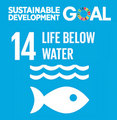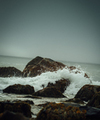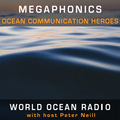Fish supplies are being rapidly depleted due to overfishing, especially in the deep ocean outside of national jurisdiction. The EU has developed actions intended to confront and limit illegal, unreported, and unregulated fishing (IUU); beyond these measures, two California scientists are advocating for a radical idea: close the high seas to fishing altogether. In this episode of World Ocean Radio, host Peter Neill will share the ideas outlined in the study and will suggest that it is just such a radical notion that we must embrace if we are to allow the marine food supply to recover from our past excesses and mistakes.
__________________________________________________________________________
Peter Neill, host of World Ocean Radio, provides coverage of a broad spectrum of ocean issues from science and education to advocacy and exemplary projects. World Ocean Radio is a weekly series of 5-minute audio essays available for syndicated use at no cost by college and community radio stations worldwide. Contact us for more information or to become a broadcast affiliate .
Image: Tuna purse seiner: illegal fishing by an Ecuadorian tuna boat in Panamanian waters.
Credit: CONAMAR Foundation | Marine Photobank
Resources from this episode:
< Could Closing the High Seas to Fishing Save Migratory Fish? | Phys.org
< EU Rules To Combat Illegal, Unreported, and Unregulated Fishing

 Communications move at astonishing speed along a global network (much of it underwater) owned wholly or in partnership by Tata Communications, one of the largest telecommunications businesses in the world and a model company for globalization.
Communications move at astonishing speed along a global network (much of it underwater) owned wholly or in partnership by Tata Communications, one of the largest telecommunications businesses in the world and a model company for globalization. 






